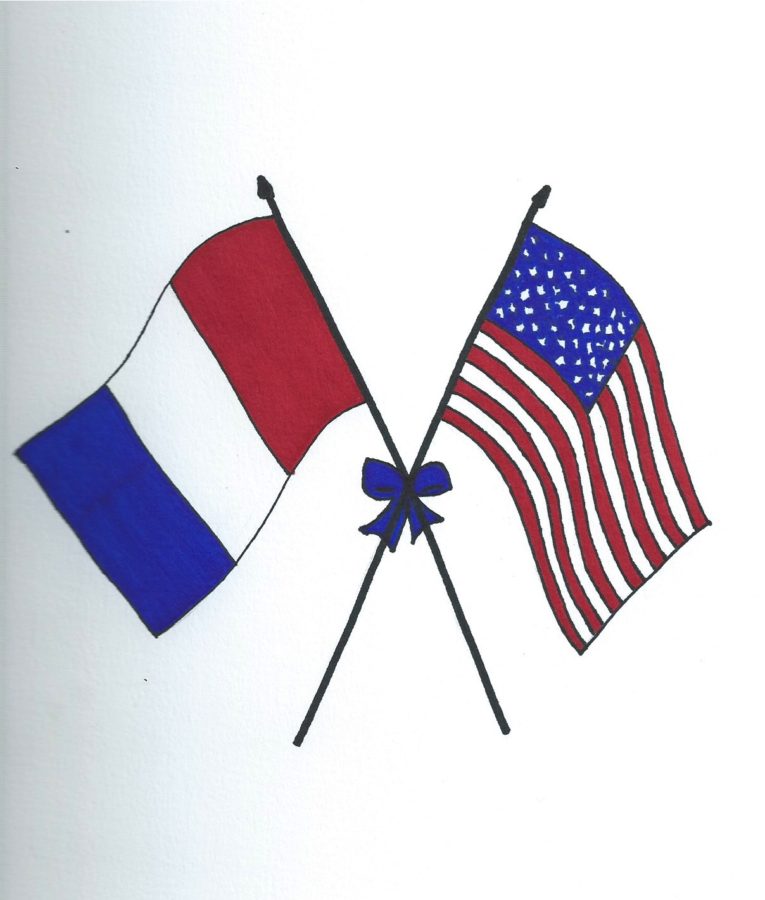Glawe: The license to offend
January 13, 2015
On Feb. 14, 1989, a fatwa — essentially a ruling given by a recognized Islamic authority — was issued, calling for Salman Rushdie’s execution after his fourth book, “The Satanic Verses” was published. The book was considered blasphemous for its depiction of the Prophet Muhammad.
Nearly ten years ago, Jylland-Posten, a Danish newspaper, published cartoons depicting the Prophet Muhammad in a manner also considered blasphemous to the Muslim population. Protests erupted — some violent — and death threats were fired at the editors and cartoonists of Jyllan-Posten. Since then, Danish authorities have foiled various assassination attempts, while the editors and cartoonists remain in constant fear for their lives.
At approximately 11:30 CET on Wednesday, gunmen opened fired on the satirical newspaper Charlie Hebdo, killing 12 people. The weekly paper has traditionally published satire aimed at the Prophet Muhammad. Upon their escape, the two gunmen who committed the crime declared, in French, “We have avenged the Prophet Muhammad, we killed Charlie Hebdo.”
Do you see the underlying trend here? The past decade and a half has been littered with the sinister lamentations of a particular religion that requires no further introduction. I say sinister because the offended parties have, time and again, flung their hands over their mouths in disgust of the offenders, issuing capital penalties on the offenders for non-capital offenses.
You have a right to be offended, whether you’re a votary of your religion or not. I will defend, to my last breath, your right to be offended, but I absolutely will not defend the claim that the offense that is taken requires violent recompense.
Freedom of speech includes the license to offend — violence in response to this exercise by the free-speaking world should not be tolerated. We can all agree to that. Listen closely and you’ll hear commentators murmuring out of the corner of their mouths that perhaps freedom of speech should come with restrictions or legal limitations.
What a ghastly proposition. I dare say, we would soon see the end of all the principles set forth by the Enlightenment. Without these principles to follow, we lose the critical faculties with which to communicate and express what is most important to us as humans — our ideas.
So there are those who are not just offended, but will seek violent retribution in response, and their slight justification is given credibility by the simpering capitulation of those who think we should be nicer to people, or else. That’s called self-censorship, and by participation, you allow the terrorists and other perpetrators of intimidation to win.
More so, if discussion about the Charlie Hebdo attack has taught us one thing, it is that religion too often receives special treatment when it comes to satire. We can make fun of anything, but when jokes are slung at a prophet or religious leader, laughter sours into hushed solemnity. Religion is off-limits in many countries. Why?
As is the case with Charlie Hebdo, satire and cartoons contribute to public discourse in their own unique way. As readers, a simple cartoon may give us a clearer vision of the absurdities in our governments, our cultures, and yes, even our sacred religions.
And why should we tone down the jokes? Well, because the forces of God — take whatever religion you’d like, a la carte — can tell you what you can and can’t say. Isn’t there something inherently absurd about that?
If we are to have a civil society, where people are free to express themselves, we cannot allow religious fervor to hush our voices. This includes the possibility of preposterousness, as in a believer in a flat Earth has as much say as you or I. As unfortunate as it may seem, this is encouraging. After all, how would you explain to a holocaust denier that the atrocity was real? If your blood is boiling, perhaps you’d find a way and that is an improvement on your own critical faculties.
Most importantly, don’t let anyone tell you, reader, what you can and can’t say and where you can say it. This includes, for instance, the ridiculous proposition that public discourse can be relegated to a “free speech zone” — ahem, Iowa State University.
For those who are seeking to impose these restrictions on speech, you only harm yourself in the process. It’s not a small sacrifice that you are making, either. You lose not only rights to speak your opinion, but also your right to hear the thoughts and considerations of your neighbor.
If you persist in the destruction of the laws that protect the very substance of who we are, do not expect us to protect you while they — whatever fanatic “they” will be next time — strip you of the remainder of your rights. As Sir Thomas More once said, “What would you do? Cut a great road through the law to get after the Devil? … And when the last law was down, and the Devil turned round on you — where would you hide, the laws all being flat?”

















